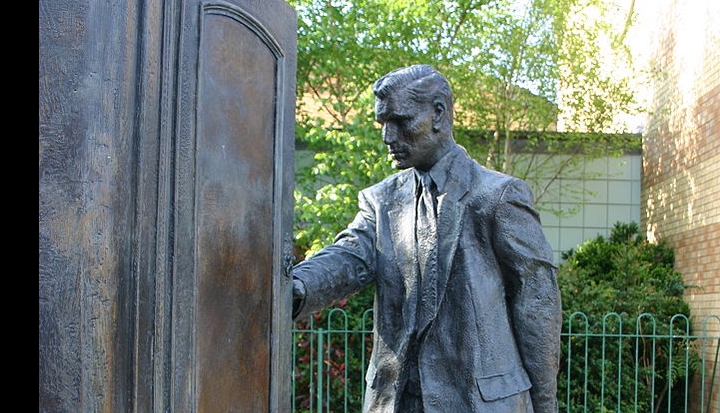
C. S. Lewis
Born: November 29, 1898
Died: November 22, 1963
Born in Belfast in 1898 (he always saw himself as Irish), Clive Staples Lewis taught at Oxford and Cambridge in medieval and renaissance English. He belonged to the informal literary society known as the Inklings, which included The Lord of the Rings author J. R. R. Tolkien. Though many know him only through his fiction, Lewis also wrote poems, essays, and works of Christian apologetics.
“Christianity, if false, is of no importance,” he wrote, “and if true, of infinite importance. The only thing it cannot be is moderately important.” This was something Lewis had to learn. Though raised as a nominal Christian, he soon lost whatever faith he had and spent his young adulthood finding a path back to God. Through the encouragement of close friends such as Tolkien, a Catholic, Lewis found the God “whom I so earnestly desired not to meet,” converting to Anglicanism in 1931.
This lost-and-found approach to God allowed him to view the faith from a long ways off, giving him a very broad view of Christianity as a whole. Lewis called his great work of apologetics Mere Christianity, in which he strongly argues for a compellingly essential Christianity that could be supported by Catholic and Protestant alike.
More about C. S. Lewis:
C.S. Lewis: Master allusionist
Lewis challenges us to seek God in an unusual place: our imaginations.
In the works of C.S. Lewis, find Christian truth in fantasy
Imaginative storytelling can baptize our imaginations and pave the way to receiving the gospel.
C.S. Lewis reveals the emotional core of the gospels
“‘Thou shalt not’ is soon forgotten, but ‘Once upon a time’ lasts forever.”
Image: Flickr cc via klndonnelly






